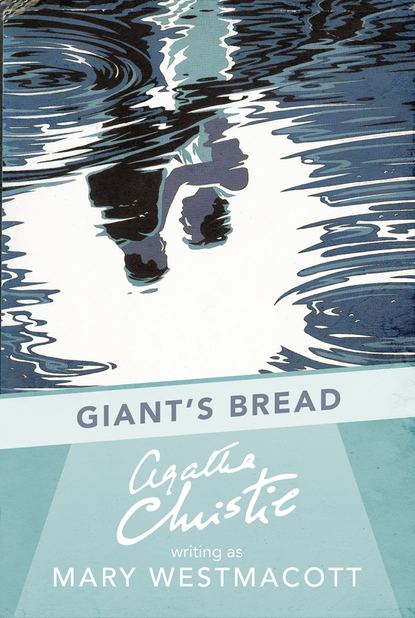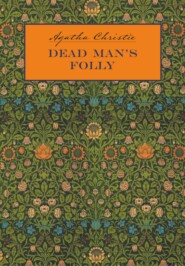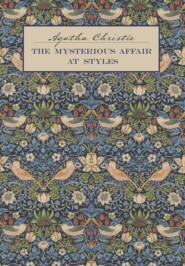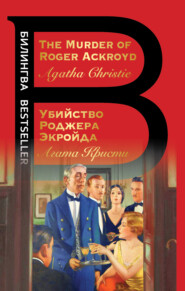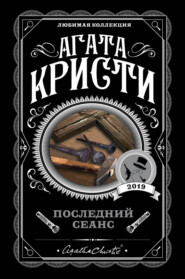По всем вопросам обращайтесь на: info@litportal.ru
(©) 2003-2024.
✖
Giant’s Bread
Автор
Год написания книги
2019
Настройки чтения
Размер шрифта
Высота строк
Поля
And as Vernon had heard her say much the same to Winnie one day, he was soothed and satisfied. On the occasion in question, Nurse had gone on to say that there were always two sides to a question and in future Vernon always visualized a question as something like a letter A with crosses creeping up one side of it and diamonds going down the other.
After Nurse there was God. God was also very real to Vernon mainly because he bulked so largely in Nurse’s conversation. Nurse knew most things that you did, but God knew everything, and God was, if anything, more particular than Nurse. You couldn’t see God, which, Vernon always felt, gave him rather an unfair advantage over you, because he could see you. Even in the dark, he could see you. Sometimes when Vernon was in bed at night, the thought of God looking down at him through the darkness used to give him a creepy feeling down the spine.
But on the whole, God was an intangible person compared with Nurse. You could conveniently forget about him most of the time. That was, until Nurse lugged him deliberately into the conversation.
Once Vernon essayed revolt.
‘Nurse, do you know what I shall do when I’m dead?’
Nurse, who was knitting stockings, said: ‘One, two, three, four, there now, I’ve dropped a stitch. No, Master Vernon, I’m sure I don’t.’
‘I shall go to Heaven—I shall go to Heaven—and I shall go right up to God—right up to him I shall go, and I shall say: “You’re an ’orrible man and I ’ate you!”’
Silence. It was done. He had said it. Unbelievable, unparalleled audacity! What would happen? What awful punishment terrestrial or celestial would descend upon him? He waited—breathless.
Nurse had picked up the stitch. She looked at Vernon over the top of her spectacles. She was serene—unruffled.
‘It’s not likely,’ she remarked, ‘that the Almighty will take any notice of what a naughty little boy says. Winnie, give me those scissors, if you please.’
Vernon retired crestfallen. It was no good. You couldn’t down Nurse. He might have known.
And then there was Mr Green. Mr Green was like God in that you couldn’t see him, but to Vernon he was very real. He knew, for instance, exactly what Mr Green looked like—of middle height, rather stout, a faint resemblance to the village grocer who sang an uncertain baritone in the village choir, bright red cheeks and mutton chop whiskers. His eyes were blue, a very bright blue. The great thing about Mr Green was that he played—he loved playing. Whatever game Vernon thought of, that was just the game that Mr Green loved to play. There were other points about him. He had, for instance, a hundred children. And three others. The hundred, in Vernon’s mind, were kept intact, a joyous mob that raced down the yew alleys behind Vernon and Mr Green. But the three others were different. They were called by the three most beautiful names that Vernon knew: Poodle, Squirrel and Tree.
Vernon was, perhaps, a lonely little boy, but he never knew it. Because, you see, he had Mr Green and Poodle, Squirrel and Tree to play with.
For a long time Vernon was undecided as to where Mr Green’s home was. It came to him quite suddenly that of course Mr Green lived in the Forest. The Forest had always been fascinating to Vernon. One side of the Park bordered on it. There were high green palings and Vernon used to creep along them hoping for a crack that would let him see through. There were whisperings and sighings and rustlings all along, as though the trees were speaking to each other. Half-way down there was a door, but alas, it was always locked, so that Vernon could never see what it was really like inside the Forest.
Nurse, of course, would never take him there. She was like all nurses and preferred a good steady walk along the road, and no messing your feet up with them nasty damp leaves. So Vernon was never allowed to go in the Forest. It made him think of it all the more. Some day he would take tea there with Mr Green. Poodle and Squirrel and Tree were to have new suits for the occasion.
The nursery palled on Vernon. It was too small. He knew all there was to know about it. The garden was different. It was really a very exciting garden. There were so many different bits of it. The long walks between the clipped yew hedges with their ornamental birds, the water garden with the fat goldfish, the walled fruit garden, the wild garden with its almond trees in spring time and the copse of silver birch trees with bluebells growing underneath, and best of all the railed-off bit where the ruins of the old Abbey were. That was the place where Vernon would have liked to be left to his own devices—to climb and explore. But he never was. The rest of the garden he did much as he liked in. Winnie was always sent out with him but since by a remarkable coincidence they always seemed to encounter the second gardener, he could play his own games unhindered by too much kind attention on Winnie’s part.
Gradually Vernon’s world widened. The twin star, Mummy-Daddy, separated, became two distinct people. Daddy remained nebulous, but Mummy became quite a personage. She often paid visits to the nursery to ‘play with my darling little boy’. Vernon bore her visits with grave politeness, though it usually meant giving up the game that he himself was engaged upon and accepting one which was not, in his opinion, nearly so good. Lady visitors would sometimes come with her, and then she would squeeze Vernon tightly (which he hated) and cry:
‘It’s so wonderful to be a mother! I never get used to it! To have a darling baby boy of one’s very own.’
Very red, Vernon would extricate himself from her embrace. Because he wasn’t a baby boy at all. He was three years old.
Looking across the room one day, just after a scene like the above, he saw his father standing by the nursery door with sardonic eyes, watching him. Their eyes met. Something seemed to pass between them—comprehension—a sense of kinship.
His mother’s friends were talking.
‘Such a pity, Myra, that he doesn’t take after you. Your hair would be too lovely on a child.’
But Vernon had a sudden feeling of pride. He was like his father.
Vernon always remembered the day that the American lady came to lunch. To begin with, because of Nurse’s explanations about America which, as he realized later, she confused with Australia.
He went down to dessert in an awe-stricken state. If this lady had been at home in her own country, she would be walking about upside down with her head hanging down. Quite enough, this, to make him stare. And then, too, she used odd words for the simplest things.
‘Isn’t he too cute? See here, honey, I’ve gotten a box of candy for you. Won’t you come and fetch it?’
Vernon came gingerly; accepted the present. The lady clearly didn’t know what she was talking about. It wasn’t candy, but good Edinburgh Rock.
There were two gentlemen there also, one the husband of the American lady. This one said:
‘Do you know half a crown, my boy, when you see it?’
And it presently turned out that the half-crown was to be for his very own to keep. Altogether it was a wonderful day.
Vernon had never thought very much about his home. He knew that it was bigger than the Vicarage, where he sometimes went to tea, but he seldom played with any other children or went to their homes. So it came to him with a shock of wonder that day. The visitors were taken all over the house, and the American lady’s voice rose ceaselessly.
‘My, if that isn’t too wonderful. Did you ever see such a thing? Five hundred years, you say? Frank, listen to that. Henry the eighth—if it isn’t just like listening to English history. And the Abbey older still, you say?’
They went everywhere, through the long picture gallery where faces strangely like Vernon’s with dark eyes set close together and narrow heads looked out from the painted canvas arrogantly or with cold tolerance. There were meek women there in ruffs or with pearls twisted in their hair—the Deyre women had done best to be meek, married to wild lords who knew neither fear nor pity—who looked appraisingly at Myra Deyre, the last of their number, as she walked beneath them. From the picture gallery they went to the square hall, and from there to the Priest’s Chamber.
Vernon had been removed by Nurse long since. They found him again in the garden feeding the goldfish. Vernon’s father had gone into the house to get the keys of the Abbey ruins. The visitors were alone.
‘My, Frank,’ said the American lady. ‘Isn’t it too wonderful? All these years. Handed down from father to son. Romantic, that’s what I call it, just too romantic for anything. All these years. Just fancy! How is it done?’
It was then that the other gentleman spoke. He was not much of a talker, so far Vernon had not heard him speak at all. But he now unclosed his lips and uttered one word—a word so enchanting, so mysterious, so delightful that Vernon never forgot it.
‘Brumagem,’ said the other gentleman.
And before Vernon could ask him (as he meant to do) what that marvellous word meant, another diversion occurred.
His mother came out of the house. There was a sunset behind her—a scene painter’s sunset of crude gold and red. Against that background Vernon saw his mother—saw her for the first time—a magnificent woman with white skin and red gold hair—a being like the pictures in his fairy book, saw her suddenly as something wonderful and beautiful.
He was never to forget that strange moment. She was his mother and she was beautiful and he loved her. Something hurt him inside, like a pain—only it wasn’t a pain. And there was a queer booming noise inside his head—a thundering noise that ended up high and sweet like a bird’s note. Altogether a very wonderful moment.
And mixed up with it was that magic word Brumagem.
CHAPTER 2 (#ulink_020984b2-b613-5035-a67b-44c3022e8869)
Winnie the nursemaid was going away. It all happened very suddenly. The other servants whispered together. Winnie cried. She cried and cried. Nurse gave her what she called a Talking To and after that Winnie cried more than ever. There was something terrible about Nurse, she seemed larger than usual and she crackled more. Winnie, Vernon knew, was going away because of Father. He accepted that fact without any particular interest or curiosity. Nursemaids did sometimes go away because of Father.
His mother was shut in her room. She too was crying. Vernon could hear her through the door. She did not send for him and it did not occur to him to go to her. Indeed he was vaguely relieved. He hated the noise of crying, the gulping sound, the long-drawn sniffs, and it always happened so close to your ears. People who were crying always hugged you. Vernon hated those kind of noises close to his ears. There was nothing in the world he hated more than the wrong sort of noise. It made you feel all curled up like a leaf in your middle. That was the jolly part about Mr Green. He never made the wrong kind of noise.
Winnie was packing her boxes. Nurse was in with her—a less awful Nurse now—almost a human Nurse.
‘Now you let this be a warning to you, my girl,’ said Nurse. ‘No carryings on in your next place.’
Winnie sniffed something about no real harm.
‘And no more there wouldn’t be, I should hope, with Me in charge,’ said Nurse. ‘A lot comes, I daresay, of having red hair. Red-haired girls are always flighty, so my dear mother used to say. I’m not saying you’re a bad girl. But what you’ve done is unbecoming. Unbecoming—I can’t say more than that.’
And, as Vernon had often noticed after using this particular phrase, she proceeded to say a good deal more. But he did not listen, for he was pondering on the word Unbecoming. Becoming, he knew, was a thing you said about a hat. Where did a hat come in?
‘What’s unbecoming, Nurse?’ he asked later in the day.





